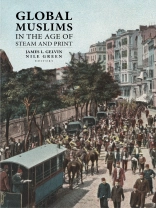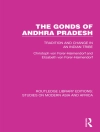The second half of the nineteenth century marks a watershed in human history. Railroads linked remote hinterlands with cities; overland and undersea cables connected distant continents. New and accessible print technologies made the wide dissemination of ideas possible; oceangoing steamers carried goods to faraway markets and enabled the greatest long-distance migrations in recorded history.
In this volume, leading scholars of the Islamic world recount the enduring consequences these technological, economic, social, and cultural revolutions had on Muslim communities from North Africa to South Asia, the Indian Ocean, and China. Drawing on a multiplicity of approaches and genres, from commodity history to biography to social network theory, the essays in
Global Muslims in the Age of Steam and Print offer new and diverse perspectives on a transnational community in an era of global transformation.
Содержание
List of Illustrations
Acknowledgments
Introduction: Global Muslims in the Age of Steam and Print
James L. Gelvin and Nile Green
Part One. Communities and Networks
1. A Sufi Century? The Modern Spread of the Sufi Orders in Southeast Asia
Michael Laffan
2. An Ottoman Pasha and the End of Empire: Sulayman al-Baruni and the Networks of Islamic Reform
Amal Ghazal
3. ‘A Leading Muslim of Aden’: Personal Trajectories, Imperial Networks, and the Construction of Community in Colonial Aden
Scott S. Reese
4. Fin-de-Siècle Egypt: A Nexus for Mediterranean and Global Radical Networks
Ilham Khuri-Makdisi
Part Two. Contagions and Commodities
5. Hajj in the Time of Cholera: Pilgrim Ships and Contagion from Southeast Asia to the Red Sea
Eric Tagliacozzo
6. Trafficking in Evil? The Global Arms Trade and the Politics of Disorder
Robert Crews
7. The Creation of Iranian Music in the Age of Steam and Print, circa 188–1914
Ann E. Lucas
8. The Globalization of Dried Fruit: Transformations in the Eastern Arabian Economy, 186s–192s
Matthew S. Hopper
Part Three. Nodes and Routes
9. Remembering Java’s Islamization: A View from Sri Lanka
Ronit Ricci
1. From Zanzibar to Beirut: Sayyida Salme bint Said and the Tensions of Cosmopolitanism
Jeremy Prestholdt
11. The Return of Gog: Politics and Pan-Islamism in the Hajj Travelogue of {ayn}Abd al-Majid Daryabadi
Homayra Ziad
12. Taking {ayn}Abduh to China: Chinese-Egyptian Intellectual Contact in the Early Twentieth Century
Zvi Ben-Dor Benite
List of Contributors
Index
Об авторе
James L. Gelvin is Professor of History at UCLA and author of The Modern Middle East: A History (2011). Nile Green is Professor of History at UCLA and author of Bombay Islam: The Religious Economy of the West Indian Ocean, 1840-1915 (2011).












